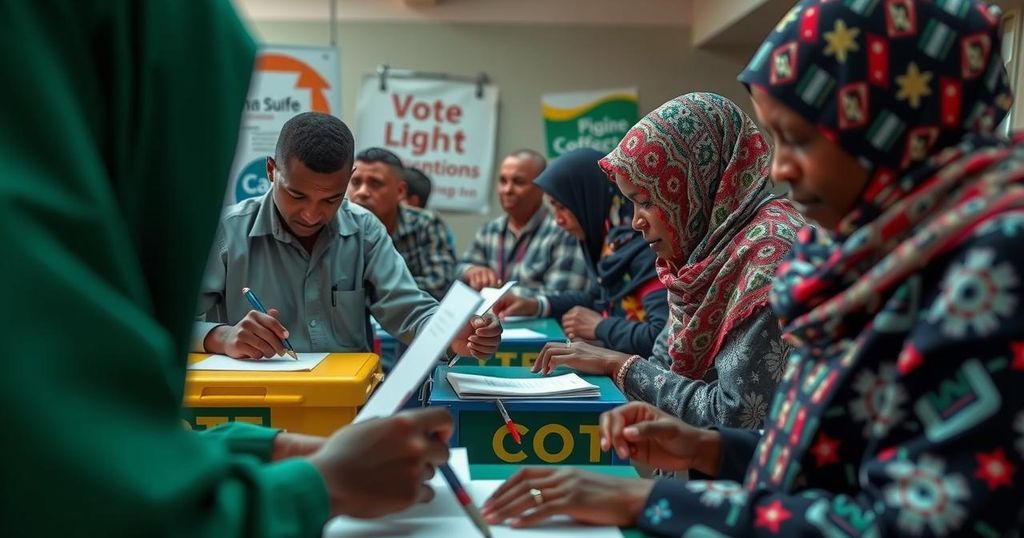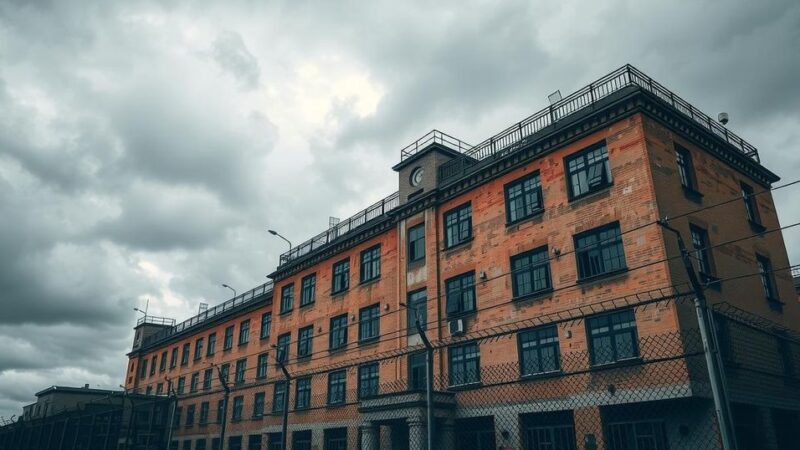Vote counting is underway in Somaliland after a peaceful presidential election. Over 1 million voters participated in the electoral process, which was confirmed to proceed smoothly. Incumbent President Muse Bihi Abdi is seeking re-election against two opponents. The elections occur amid heightened tensions between Somaliland and Somalia over a controversial Ethiopia-Somaliland agreement concerning territorial access.
The Somaliland National Electoral Commission (NEC) has initiated vote counting following peaceful presidential elections held in Somaliland. Polls closed at 6 p.m. local time, with over 1 million registered voters participating across approximately 2,000 polling stations. NEC Chairman Muse Hassan Yusuf reported minor technical issues during the voting process, yet affirmed that these have been addressed. He indicated that results would be announced by November 21, 2023. General Mohamed Adan Saqadhi, head of the Somaliland Police Force, confirmed the elections were conducted without incidents, emphasizing the democratic nature of the voting. “Thanks to Allah, the election took place democratically and peacefully. No incident was reported,” said Saqadhi. Among the candidates, incumbent President Muse Bihi Abdi of the ruling Kulmiye party competed against Abdirahman Mohamed Abdullahi of the Waddani party and Faisal Ali Warabe of the UCID party. Each candidate has vowed to bolster democracy and enhance economic growth while seeking international recognition for Somaliland. Somaliland declared independence in 1991 after the collapse of the Siad Barre regime and has established functioning governmental institutions; however, it remains unrecognized internationally. Recent tensions have arisen between Somalia and Ethiopia owing to a controversial agreement signed between Ethiopia and Somaliland, which grants Ethiopia a 50-year lease of access to coastal land in exchange for potential recognition of Somaliland’s independence. This memorandum has provoked strong reactions from the Somali government, leading to diplomatic expulsions and heightened political strain. Despite the challenges surrounding the region’s international standing, the elections reflect Somaliland’s commitment to democratic principles. The electoral process was conducted smoothly, demonstrating the resilience of its political framework. Ultimately, the outcome of this election could significantly impact both domestic policies and regional relations, particularly concerning the ongoing dispute with Somalia over sovereignty and territorial integrity.
Somaliland, a self-declared independent region in the northwestern part of Somalia, has undergone significant political developments since it declared independence in 1991. Without gaining international recognition, it has created a stable government, developed a functioning political system, and facilitated democratic elections over the years. The region’s recent elections mark its commitment to the democratic process yet highlight ongoing tensions with Somalia over various agreements, particularly with Ethiopia regarding territorial issues. The region has successfully conducted multiple peaceful transfers of power, despite not being formally recognized by the international community.
In summary, the recent presidential elections in Somaliland underscore the region’s dedication to democratic governance amid complex political dynamics. The electoral agency has commenced the counting of votes with assurance of a peaceful process, while candidates have pledged to enhance economic prospects and secure recognition. However, ongoing tensions with Somalia regarding territorial agreements pose challenges to Somaliland’s political aspirations. The forthcoming results will be critical in shaping the region’s future direction and its interactions with neighboring countries.
Original Source: www.voanews.com





